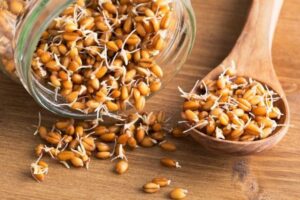
According to Khabar Online, with the industrialization of cities and the increase in the use of vehicles, the impact of air pollution on humans has also increased. According to the official statistics of the Tehran Air Quality Control Company, the air in the capital of Iran is more and more polluted and is considered unhealthy for sensitive groups on most days. In addition to the capital, the air in other big cities of Iran is not in a good condition.
IRNA wrote in a report: According to the report of the Ministry of Health, the number of annual deaths in Iran that are related to air pollution is estimated to be around 50,000. Among these, Tehran city alone has about 7 thousand deaths attributed to air pollution per year. These statistics include diseases such as heart and brain strokes, cancers and respiratory diseases that are directly related to air pollution.
Exposure to air pollution can cause irreparable consequences for people’s health. Meanwhile, children, the poor and the elderly are more susceptible to diseases caused by air pollution than other groups.
Also, the short-term effects of air pollution can be seen quickly on the respiratory system of people. Exposure to air pollutants can cause a variety of lung problems, such as asthma, lung infections, bronchitis, shortness of breath, tracheal cancer, and chest pain. Pollutant particles enter the respiratory tracts through breathing and irritate or block them. Also, polluted air can increase the duration of treatment of some diseases, such as influenza, corona and cold.
We all know that air pollution affects the human respiratory system; But few people know about the effects of air pollution on the brain and the possibility of developing neurological and mental diseases. Toxic air pollutants enter the digestive system through the mouth and nose and are sent throughout the body through the blood. The human brain is the biggest user of substances in the body’s blood, and for this reason, it is more affected by pollutants.
The latest research studies have proven that air pollution can cause a decrease in sperm quality, hormonal disorders in women and a decrease in fertility rates.
Air pollution also has an important effect on people’s health, quality of life, and finally on the decrease in birth rate and increase in death rate, the latest research studies have proven that air pollution can cause a decrease in sperm quality, hormonal disorders in women and a decrease in fertility rate.
Indiscriminate use of fertilizers and chemical poisons has caused soil pollution and contaminated food products can negatively affect the health of future generations, and the destruction of agricultural lands has reduced food resources and increased food insecurity, which affects families’ decision to have children.
Environmental policy, approval of strict laws to reduce industrial and automobile pollution, development of renewable energy, education and public awareness, increasing people’s awareness about the harmful effects of pollution and ways to deal with it, improving waste management systems, sewage and water treatment, and improving public health with The development of health services in deprived areas is necessary to improve people’s health away from pollutants.
Dealing with this crisis requires serious measures at the individual, social and governmental levels, and only through accurate and sustainable planning can the destructive effects of this phenomenon be reduced on the Iranian society and better conditions can be provided for future generations. Days also require a special look from the government.
According to statistics, about 80% of the world’s population lives in environments that exceed the air quality guidelines. Approximately 4.2 million people die annually from exposure to outdoor air pollution.
Nitrogen dioxide levels are thought to be about the same in high-, low-, and middle-income countries. Those living in urban areas seem to suffer the most from pollution-related health problems, as urban areas are more likely to be forested. Low natural areas or land are home to concentrated population and transportation, and urban areas have been shown to produce approximately 78% of carbon emissions and significant air pollutants.
According to experts, living in polluted air compared to living in a clean city has 16% overall mortality, 27% heart disease related mortality, 28% cancer mortality and 75% heart attack risk. increases Pollutants in the air can aggravate respiratory problems such as asthma and diseases such as diabetes, heart disease or liver disease. At times when air pollution is getting worse, one of the best solutions is to pay attention to healthy eating.
Therefore, we must consider ways to reduce the damage to the health of the body. One of the solutions to strengthen the immune system in order to fight free radicals caused by air pollution in the body is to consume certain foods.
Getting some foods and nutrients that reduce inflammation, along with getting high amounts of dietary antioxidants, can help reduce the harmful effects of fine dust inhalation.
Proper nutrition during air pollution should be rich in antioxidant substances to neutralize the effects of free radicals. Foods containing vitamin C, vitamin E and vitamin D can have the best effect in fighting air pollution. Increase the consumption of fruits and vegetables on the days when air pollution increases and drink 8 to 10 glasses of water daily.
Why adopt a dietary strategy to fight pollution?
Although you may care about your health and include plenty of healthy foods in your daily diet to stay fit and healthy, you may not know that the antioxidants in fresh tomatoes or other foods can help you Breathe easier.
Consuming such foods to prevent air pollution is not only a safe and simple method, but also saves money. As governments and various environmental groups continue to play their part in controlling air pollution, eating well can help you take steps to help improve your immune system to combat air pollution.
The best food in the days of air pollution
In polluted air, you should eat some foods that have the effect of neutralizing toxic substances in the air. It is also recommended to consume foods that contain selenium and beta-carotene antioxidants; When the inhaled air is polluted, a large amount of free radicals are produced in the body, which reduces the ability of a person to perform daily life tasks and even in the long term can cause chronic diseases such as cardiovascular disease and types of cancer.
To minimize the consequences of the accumulation of free radicals in the body, increase the consumption of antioxidants in the diet. Vegetables and fruits such as cantaloupe, mango, pumpkin, pepper, spinach, cabbage and apricot have beta-carotene. Selenium can also be found in seafood, chicken, bread, nuts and whole grains.
Increasing consumption of omega-3, fruits and vegetables on infected days
Unfortunately, long-term exposure to polluted air puts the heart and brain at risk. The World Health Organization has announced in its latest statistics that air pollution kills 7 million people worldwide every year. The combination of indoor and outdoor pollution is responsible for about 7 million premature deaths per year, mostly due to stroke, heart disease, chronic obstructive pulmonary disease, lung cancer, and acute respiratory infections.
The results of various studies show that the consumption of omega-3 fatty acids is very beneficial for human health, especially cardiovascular health, and the consumption of foods rich in omega-3 can be effective in reducing the risk of chronic diseases such as heart disease, cancer, and arthritis. .
Therefore, the only way to save your life in polluted air is to increase your body strength and strengthen your immune system by consuming strong micronutrients such as vitamin C and omega-3. Omega 3 protects the brain from the deadly factors of polluted air such as lead and mercury, and vitamin C strengthens the immune system.
People who consume a lot of fish and omega-3 in polluted air; They are less prone to stroke
Due to the high impact of polluted air on mortality, in 2020, the American Neurological Association published an article in this field that presented many facts related to omega-3 consumption and air pollution. The researchers found that among older women who lived in areas with high levels of air pollution, women with the lowest levels of omega-3 fatty acids in their blood had more inflammation in their brains than women with the highest levels.
The researchers found in this study; To fight inflammation of the brain and maintain the normal structure of the brain in old age, consuming fish is very helpful due to its omega-3 content. The purpose of this study was to investigate the role of omega-3 fatty acids and the protective role of omega-3 in the brain against neurotoxins (compounds that kill or kill nerve tissues) in polluted air such as lead and mercury.
Important nutritional recommendations to reduce the effects of air pollution
1- Consumption of foods containing omega 3:Several studies have shown that higher consumption of omega-3 PUFA from fish oil can effectively reduce the risk of cardiovascular disease by targeting risk factors such as hypertriglyceridemia and cardiac dysfunction. By increasing the activity of endogenous antioxidants, omega-3 moderates the oxidative stress caused by particles in the air. Omega 3 food sources are fish, walnuts and purslane. However, taking omega-3 supplements is easier due to the low fish consumption culture in the country.
2- Eat vitamin C sources: Vitamin C, a water-soluble vitamin, is an abundant antioxidant and is widely distributed throughout the body, including the extracellular fluid of the lung. Ascorbate is an excellent reducing agent and scavenges free radicals and oxidants. Eat more oranges, limes, oranges, tangerines, apples, melons, cantaloupe, pomegranates and dark green vegetables such as spinach and greens, all kinds of peppers, including bell peppers and onions, and green tea because of antioxidants. Very good is one of the consumption options in the conditions of air pollution.
3- Eat foods containing vitamin E: Vitamin E, a fat-soluble vitamin, is the primary defense against oxidant-induced membrane damage in human tissue due to its role in breaking the lipid peroxidation chain reaction. It also reduces inflammatory factors in the body. Therefore, it is one of the essential needs of the body, especially in air pollution. The best sources of this vitamin are edible oils such as mixed oil, kernels of seeds such as sunflower seeds, almonds, hazelnuts, sprouts. .
4- Eat food sources of vitamin A: Use a lot of yellow and orange fruits and vegetables. High consumption of carrots, pumpkins, tomatoes, apricots, plums, cantaloupe, bananas, mangoes, and onions is strongly recommended. These fruits and vegetables have high beta-carotene (which is converted into vitamin A in the body) which helps the body to reduce the harmful effects of fine dust. Milk and eggs are also good sources of vitamin A.
5- Take vitamin D supplements: As an immune system booster, vitamin D plays an important role in dealing with the effects of air pollution. Therefore, find out about the status of vitamin D in your body with a simple blood test, and in case of deficiency, be sure to use vitamin D supplements in consultation with experts or nutritionists.
6- Do not neglect the consumption of cabbage family vegetables: Broccoli, cauliflower and cabbage have a substance that can help the process of removing toxins and preventing cancer. Research findings indicate that the consumption of these vegetables significantly reduces the negative effects of inhaled dust on the lungs.
7- Be sure to use turmeric in preparing your food: This spice contains curcumin, which improves lung function.
8- Take care of your weight: Obesity and overweight causes inflammation and pressure on the body’s organs, especially the heart and lungs, and can weaken the body’s immune system in dealing with disease-causing factors, including air pollution with fine dust. Therefore, if you are obese and overweight or your child is involved in this problem, to get rid of this problem and less damage from the fine dust in the air, refer to the nearest experts and nutritionists in your place of residence.
9- Avoiding snacks: Avoid low-value snacks such as chips and puffs and carbonated drinks. Because they disrupt the absorption of useful elements in the body and can double the effects of air pollution.
10- Avoiding processed foods: Avoid the consumption of industrial and processed foods such as sausages, sausages, and canned foods due to the presence of chemical additives, flavors, and preservatives in air pollution conditions, and increase the consumption of fresh and non-industrial foods to maintain the health of people exposed to air pollutants.
11- Increasing fluid intake: Adequate water and body fluids should be consumed daily to maintain the health of excretory organs and facilitate the elimination of toxins and excretory substances. It is better than milk and low-fat dairy products and all kinds of fruits and vegetables of the winter season such as pomegranate, persimmon, watermelon, tangerine, orange, kiwi, turnip, garlic and onion and all kinds of cabbage, cooked and raw beet in all kinds of soups and stews and of course Water and pale tea should be used more.
47236
منبع: www.khabaronline.ir








